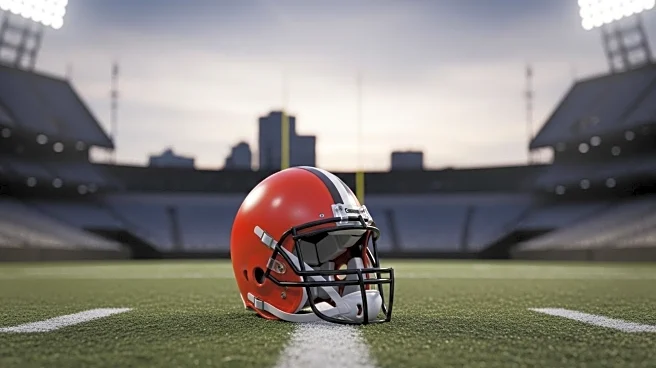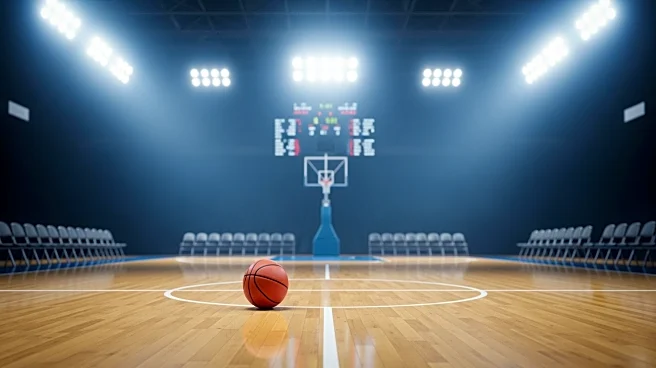What's Happening?
In 1995, Art Modell, then-owner of the Cleveland Browns, announced the relocation of the team to Baltimore, a decision that sparked significant controversy and legal battles. The Browns, a storied NFL franchise, were playing in the aging Municipal Stadium, which they shared with the Cleveland Guardians. Despite efforts by Cleveland city officials to secure funding for stadium renovations through a $175 million plan and a sin tax, Modell halted negotiations, citing financial concerns and the potential failure of a public referendum. Secret negotiations with Baltimore officials led to a deal for a new stadium, prompting Modell to announce the move. This decision led to a lawsuit from the city of Cleveland, claiming breach of the stadium lease. The legal battle concluded with Modell relinquishing the Browns' name and history, allowing for a new franchise to be established in Cleveland in 1999.
Why It's Important?
The relocation of the Browns to Baltimore had significant implications for the NFL and the city of Cleveland. It highlighted the financial pressures and stadium issues that can influence team relocations, impacting local economies and fan bases. The move led to the creation of the Modell Law in Ohio, requiring professional sports teams to provide notice and an opportunity for local purchase before relocating. This law was later invoked to prevent the relocation of the Columbus Crew, demonstrating its ongoing relevance. The Browns' move also set a precedent for how the NFL handles team relocations, balancing the interests of team owners, cities, and fans. The establishment of the Ravens in Baltimore and the eventual re-establishment of the Browns in Cleveland reshaped the NFL landscape, affecting team dynamics and regional rivalries.
What's Next?
The legal and financial frameworks established in the wake of the Browns' relocation continue to influence team movements within the NFL. The Modell Law remains a critical tool for cities to retain their sports franchises, and its application could be tested in future relocation scenarios. The Browns' current ownership, under Dee and Jimmy Haslam, faces ongoing scrutiny regarding potential moves within Ohio, though the Modell Law's stipulations provide a safeguard against out-of-state relocations. The NFL's approach to team relocations, balancing financial viability with fan loyalty, will likely evolve as cities and teams negotiate stadium deals and community investments.
Beyond the Headlines
The ethical considerations of team relocations, particularly the impact on loyal fan bases and local economies, continue to be a topic of debate. The Browns' move to Baltimore serves as a case study in the complex interplay between sports, business, and community identity. The emotional and cultural ties between teams and their cities underscore the importance of transparent negotiations and community engagement in relocation decisions. The legacy of the Browns' relocation is reflected in ongoing discussions about the responsibilities of team owners to their communities and the role of public funding in professional sports.









